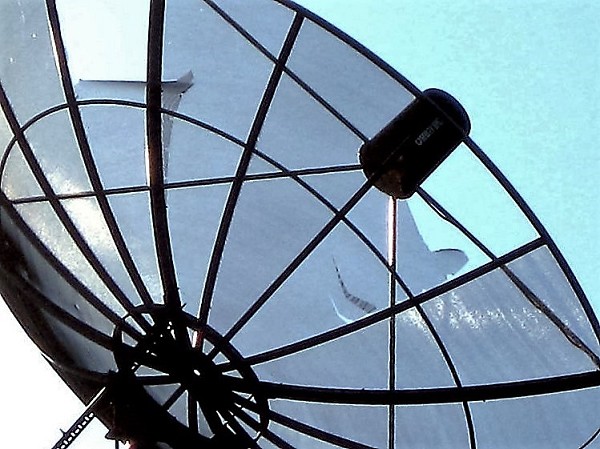DELTA DILEMMA: How Would College Use Millions From TV Station?
January 11, 2016
Leave a Comment
|
||||||||||
| Printer Friendly Story View |

Local television viewers understandably would prefer to keep their station, WDCQ, run by Delta College.
Opinion leaders from the community stated that bluntly last Thursday at a public forum at the college.
But the community has not been given a real choice.
If Delta really wants the money, estimated at up to $166 million -- what would the college do with that money?
The choice now given tri-county citizens is: 1-Give up their TV station or, 2-Allow the college to reap a bonanza for a totally opaque purpose.
Viewers in this area have two PBS stations to choose from, the second located just 40 miles away at Central Michigan University. These stations could merge, in effect, retaining the public TV service here while allowing the sale of Delta's station. WKAR East Lansing and a Detroit station have already started the merger process.
The college has not even hinted at a possible use for the money that could be generated in the Federal Communications Commission spectrum auction.
Let's just say that the college had a plan (and why they allowed the issue to be debated without a plan to use the money that might be generated by the sale is mystifying).
Say the sale would generate, when all shakes out, $120 million.
Is this a golden opportunity that should not be squandered at a crucial time in the history of fading Rust Belt area of the tri-counties?
Suppose college officials had proposed expansion of the school's presence in the downtown areas of the three communities, Bay City, Midland and Saginaw, allocated according to the relative populations of each town.
Or maybe $40 million for each community might be fairer.
The only other way to raise this kind of money would be to have each community vote to approve a millage tax ($1 per thousand of taxable valuation) on the total taxable value of $2.8 billion in Bay, $3.6 billion in Midland and $4.9 billion in Saginaw.
The TV spectrum money, if the college elects to seek it, might be used to make higher education more readily available, say, to the people in greatest need, the poor and under-educated who find it nearly impossible to escape poverty in their present circumstances.
There remains the 25 percent, or greater, high school dropout rate in much of the Delta College three county district. And early childhood preparation is not ideal, allowing many youngsters to enter the educational world unready to optimally achieve.
What would the effect of that be? Think of what the money put up by unknown donors for the Kalamazoo Promise has done for that West Michigan community.
Perhaps the Delta Promise might be established, the multi-millions from the TV station going to send thousands of needy youngsters to college over a span of years.
The Kalamazoo Promise, begun a few years ago when anonymous donors put up millions, has resulted in the school district growing again and new homes being built after years of decline.
A recent study by the Upjohn Institute summarizes: "This program, often simply called the Promise, was announced on November 10, 2005, and offers large college tuition subsidies to graduates of Kalamazoo Public Schools (KPS). Funded by anonymous private donors, the Promise pays up to 100 percent of tuition and fees for any public postsecondary institution in Michigan and is 'first dollar,' so aid is not reduced by other scholarships.
A recent report indicates Kazoo school enrollment has increased by nearly 25 percent and the city's population once again has begun to grow. College-going rates have increased significantly.
"Kalamazoo's Promise has inspired donors in 25 other cities and towns around the United States -- including Pittsburgh, New Haven and El Dorado, Ark. -- to start, or consider starting, similar programs," reported the New York Times recently.
The Bay Area Community Foundation and Executive Eileen Curtis have done heroic work in attempting to spur an increase in college attendance but could do much more with, say $40 million from the Delta TV sale.
| Printer Friendly Story View |
|
|

Dave Rogers |
|
|
|
Printer-Friendly Story View
0200 Nd: 04-19-2024 d 4 cpr 0
12/31/2020 P3v3-0200-Ad.cfm
SPONSORED LINKS
12/31/2020 drop ads P3v3-0200-Ad.cfm


